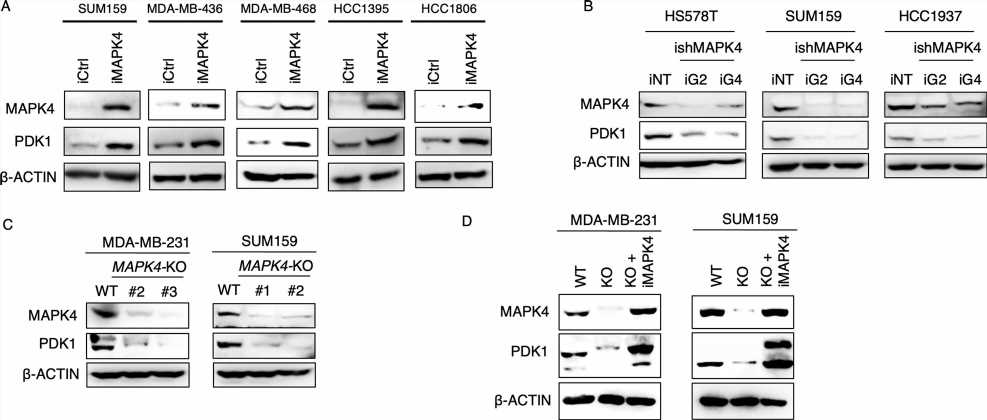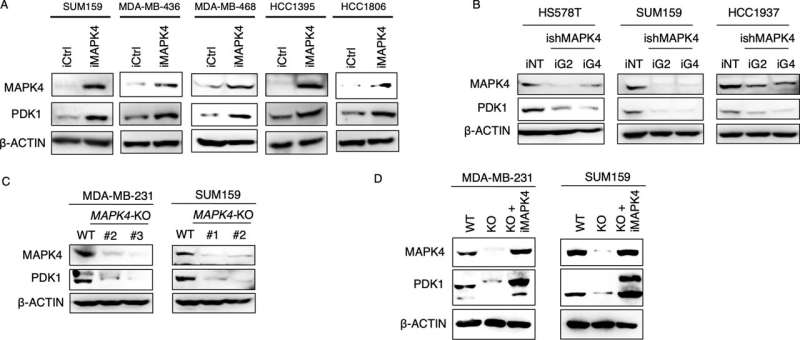

In 2022, a team of researchers at Baylor College of Medicine discovered that a little-known enzyme called MAPK4 is involved in the growth of triple negative breast cancer (TNBC) and its resistance to certain therapies. Looking into the details of this novel role of MAPK4, the researchers have now identified a strategy that can potentially control MAPK4-promoted growth in TNBC and other cancers. The study, published in PLOS Biology, opens new options for treating this devastating disease.
“Some cancers depend on MAPK4 for their growth, and our team studies cellular processes or pathways that participate in MAPK4-induced cancer growth,” said corresponding author Dr. Feng Yang, associate professor of pathology and immunology and of molecular and cellular biology. He also is a member of the Dan L Duncan Comprehensive Cancer Center at Baylor.
Yang and his team knew that in some TNBC cases, MAPK4 activates an enzyme called AKT, which promotes cancer growth. They also knew that in the same cells, another enzyme called PDK1 can also promote cancer growth by activating both AKT and a series of other enzymes of the AGC group. This PDK1-mediated activation of AGC enzymes mostly depends on the amount of PDK1 in the cell.
In this study, the team discovered that MAPK4 and PDK1 are not so independent in their tumor-promoting actions after all, and this led to a novel idea on how to treat these cancers. Working with TNBC cells in the lab, the researchers found that besides directly activating AKT, MAPK4 also enhances the production of PDK1 in cells, which in turn promotes tumor growth.
“We found that MAPK4 can activate both AKT and PDK1, which then work together enhancing cancer growth and resistance to therapy,” Yang said. “Eliminating MAPK4 in cells in the lab inhibited both of its actions on AKT and PDK1 and reduced tumor growth.”
However, there are no drugs that specifically block MAPK4 that could be tested to reduce tumor growth. Instead, Yang and his colleagues explored an alternative approach. “We showed that blocking both AKT and PDK1 effectively repressed MAPK4-induced cancer cell growth, suggesting a potential therapeutic strategy to treat MAPK4-dependent cancers, such as a subset of TNBC, prostate and lung cancer.”
“In this study we have not only advanced our understanding of the molecular mechanism underlying the tumor-promoting activity of MAPK4, we also have found a potential novel therapeutic approach for human cancers,” Yang said.
Other contributors to this work include Dong Han, Wei Wang, Julie Heejin Jeon, Tao Shen, Xiangsheng Huang and Bingning Dong, all at Baylor, and Ping Yi at the University of Houston.
More information:
Dong Han et al, Cooperative activation of PDK1 and AKT by MAPK4 enhances cancer growth and resistance to therapy, PLOS Biology (2023). DOI: 10.1371/journal.pbio.3002227
Journal information:
PLoS Biology
Source: Read Full Article